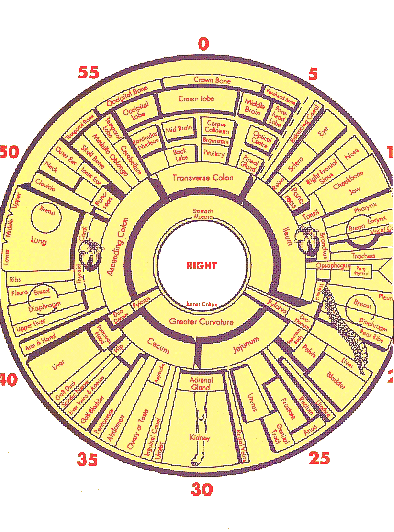The Spirit Of The Place: Samuel Shem’s New Book May Depress You
 When I was in medical school, I read Samuel Shem’s House Of God as a right of passage. At the time I found it to be a cynical yet eerily accurate portrayal of the underbelly of academic medicine. I gained comfort from its gallows humor – and it made me feel connected to my peers during the most stressful time of my training. So when I was invited to review Shem’s “bookend” to House Of God, it was with a sense of eagerness and nostalgia that I accepted the challenge. How had the author’s thinking developed since the launch of his first blockbuster in 1978? I hoped to find a kinder, gentler Shem, perhaps looking back on his career in medicine with a sense of grace and dignity. I wanted the pomp and cruelty of his training to fade away into a kind of “it was all worth it in the end” conclusion. Alas, I was jarred into a very different reality.
When I was in medical school, I read Samuel Shem’s House Of God as a right of passage. At the time I found it to be a cynical yet eerily accurate portrayal of the underbelly of academic medicine. I gained comfort from its gallows humor – and it made me feel connected to my peers during the most stressful time of my training. So when I was invited to review Shem’s “bookend” to House Of God, it was with a sense of eagerness and nostalgia that I accepted the challenge. How had the author’s thinking developed since the launch of his first blockbuster in 1978? I hoped to find a kinder, gentler Shem, perhaps looking back on his career in medicine with a sense of grace and dignity. I wanted the pomp and cruelty of his training to fade away into a kind of “it was all worth it in the end” conclusion. Alas, I was jarred into a very different reality.
The Spirit Of The Place is a gruesome portrayal of American suburban decay, mixed with some unexplained hostility towards non-Jewish Americans and those with conservative values. The hero of the book, Orville Rose, escapes his mundane American life for a two year adventure with Doctors Without Borders in Europe. He soon is ensconced in a carnal relationship with a gold-digging, alternative-medicine practicing, Buddhist, Italian yoga master who later dumps him for a Swiss banker. Orville returns from Italy to his home town of Columbia, New York, to sort out his family affairs after his mother’s death. She has arranged to transfer all of her wealth to him if he agrees to live in his childhood home for a full year and thirteen days – a fate almost worth than death.
Columbia is a horrific place, filled with poverty, violent crime, summer mosquitoes, and winter ice storms. The central medical figure is an aging general practitioner (Bill Starbuck) who regularly prescribes a kind of snake oil for various life-threatening ailments (Starbusol). Orville sees this physician as a kind of avuncular mentor, excusing his gross medical malpractice as simply “old fashioned.” Bill soon asks that Orville take over his practice while he goes on a much needed vacation, which turns out to last over a year. Orville is stuck being the only GP for a town of about seven thousand. He soon becomes overworked and overwhelmed. But that doesn’t stop him from falling in love with a single mom and polio survivor who was secretly asked by his dying mother to mail Orville letters (written in advance) after her demise. These letters are filled with venom and manipulative accusations (paging Dr. Freud).
The plot makes the reader predisposed to feel empathy for the protagonist, but Shem so exposes Orville’s character flaws that he is nearly entirely unlikable. Every tender moment in the book is derailed by some sort of unpleasant comment or thought. Take for example, the death of Dr. Starbuck. Orville is at his bedside in the ICU, explaining how important it is to treat patients with dignity, even when they are unconscious. He gently whispers that it’s ok for Dr. Starbuck “to let go” and provides one last facial shave as the man drifts off into his final breaths. And in the middle of this, what does Orville also think to himself?
“…Bill’s groin, the purple crowned penis that had had its share of adventures in repayment for his tending the whores on Diamond street. ‘Two dollars a housecall, Bill, and you never came away empty-handed.’ He took out his comb and combed Bill’s thin hair, gray lines on a shiny dome.”
And then there’s the awkward sex scene where Orville describes kissing his lover’s limb shriveled from the polio virus. I’ll save that one for your imagination.
The point, we are left to assume, of this depressing exploration of human defects (from the physical to the emotional, and at every level of organization – from the family unit to the city government and even national and international politics) is to promote tolerance and understanding of the human condition. Unfortunately the book is more likely to suck the last breath of optimism and hope out of you. The darkness has consumed the light, and with little to admire in any character portrayed in The Spirit Of The Place, it is difficult to read. In fact, it took me over two months to complete it.
That being said, Shem is an excellent writer. And for those who enjoy wrist-slitting fiction, this may be just the book for you. I was personally quite astonished by Abraham Verghese’s exuberant cover jacket blurb:
“An incredible and heartfelt story… The Spirit Of The Place entertains, satisfies, and affirms; it is beautifully conceived and brilliantly executed.”
Clearly not everyone agrees with my analysis. I’d be curious to know which one of us is crazy – me, Verghese, or Shem?
I suppose Shem would say we all are, and that’s the point…





 It’s morning, and in the shower he reaches a trembling hand up towards his face and strokes his jugular lymph node chain, searching for any indications that the small lumps palpable within might have gotten larger. He feels the same familiar bumps, rolls them like jelly beans inside a package, and wonders if at least one lymph node is rotting with cancer.
It’s morning, and in the shower he reaches a trembling hand up towards his face and strokes his jugular lymph node chain, searching for any indications that the small lumps palpable within might have gotten larger. He feels the same familiar bumps, rolls them like jelly beans inside a package, and wonders if at least one lymph node is rotting with cancer.






